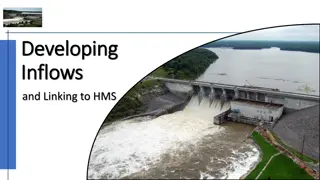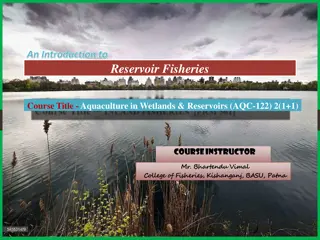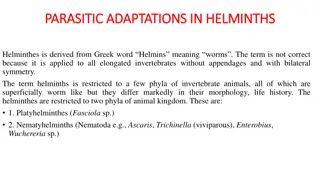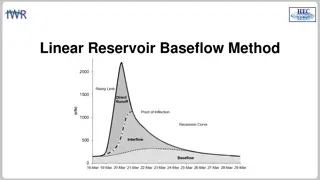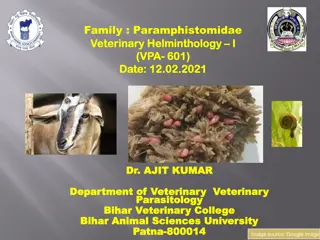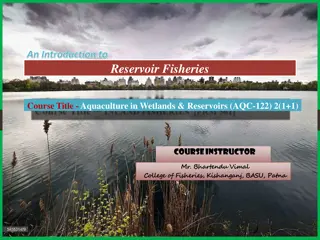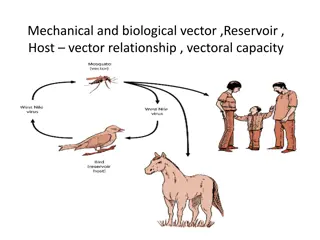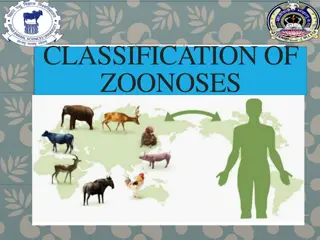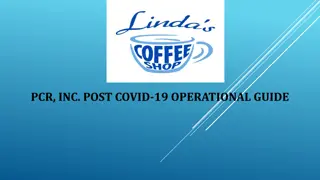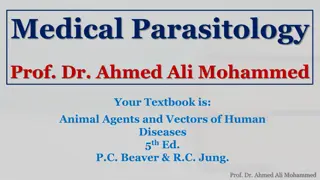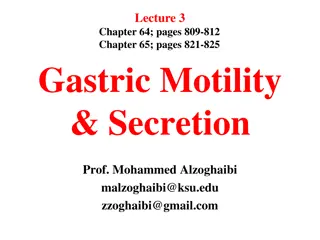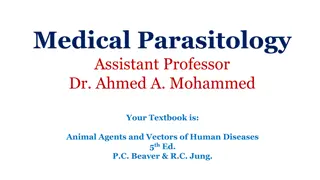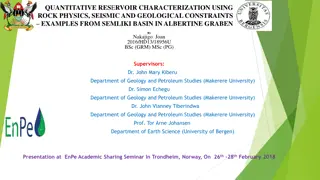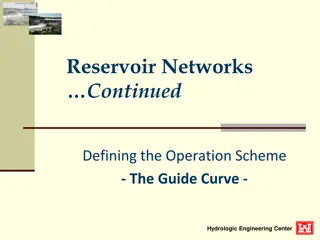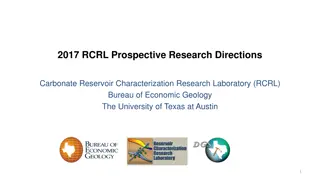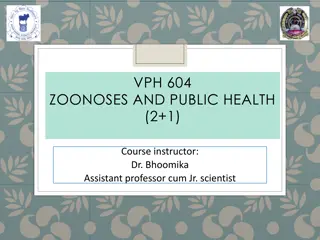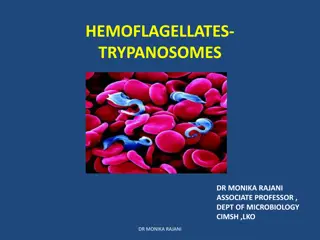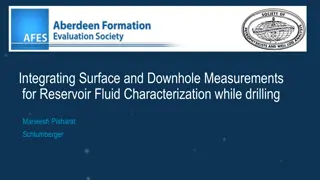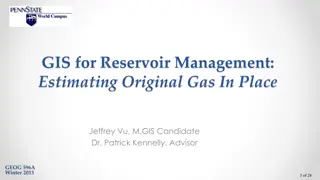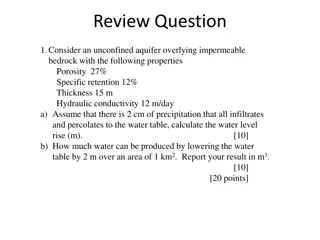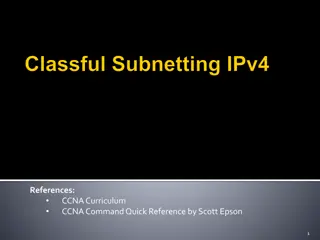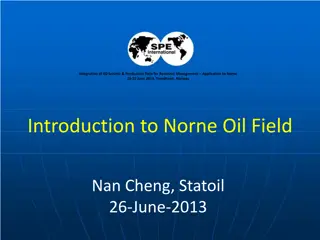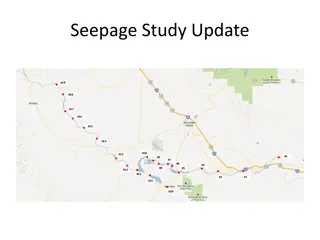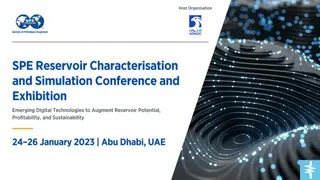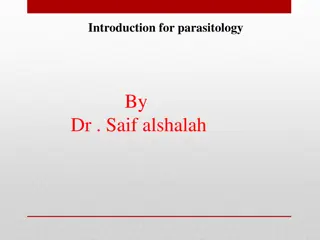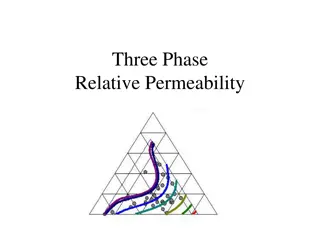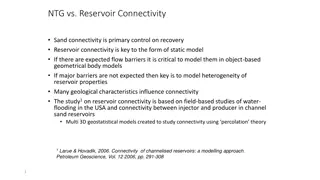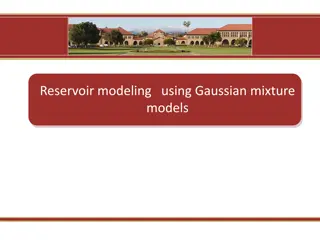airbnb business plan
Airbnb is like a global community of hosts opening their homes and hearts to travelers seeking more than just a place to stay. It's about connections, shared experiences, and making every journey personal and memorable for both hosts and guests.
7 views • 50 slides
Short-term Let Licence Application Guidelines and Requirements
Understanding the process of applying for a Short-term Let Licence (STL) through Fife Council is crucial. Existing hosts operating before 30th September 2022 need to apply for a licence before the deadline to continue operations. New hosts must acquire a licence by 1st October 2023 to operate legall
3 views • 22 slides
Managing Multiple Purposes in Reservoir Operations
Reservoirs with multiple purposes can present challenges in balancing competing needs such as water supply, flood risk management, hydropower generation, and more. Understanding the interactions between these purposes is essential for optimizing reservoir operations and ensuring reliable water suppl
2 views • 24 slides
Reservoir Storage-Yield Analyses Using HEC-ResSim Lecture #2
This lecture covers the theory of storage-yield analyses, focusing on understanding yield, types of yield like firm yield, methods to calculate yield, and the importance of storing water for re-distribution. It delves into within-year and over-year reservoir storage concepts, illustrating the minimu
7 views • 47 slides
Understanding Reservoir Inflows and Computing Methods
Explore the methods for computing reservoir inflows, including mass balance formulas, known and unknown variables, and techniques to handle negative values. Learn about linking to HMS for hydrologic engineering, estimating local inflows, and utilizing smoothing techniques for accurate results.
0 views • 24 slides
Best Car Battery Replacement in Reservoir
Are you looking for the Best Car Battery Replacement in Reservoir? Then contact AutoXpert Thomastown. They specialise in diagnosing and repairing electrical issues in vehicles of all makes and models. Their skilled technicians use the latest diagnostic tools and techniques to ensure accurate and eff
0 views • 6 slides
Overview of Reservoir Fisheries and Aquaculture in India
Reservoir fisheries play a vital role in India's aquaculture sector, with over 19,000 reservoirs covering millions of hectares. These manmade impoundments serve various purposes like irrigation and power generation. The reservoirs are classified into small, medium, and large categories based on thei
1 views • 28 slides
Adaptations in Helminth Parasites: Structural and Morphological Changes
Helminth parasites exhibit adaptations for successful living within hosts, involving structural modifications such as degeneration and new organ formation. Parasitism has evolved over time, leading to a dependent relationship between parasites and hosts. The adaptations in locomotory, digestive, and
1 views • 19 slides
Understanding Linear Reservoir Baseflow Method
The linear reservoir baseflow method utilizes linear reservoirs to simulate the movement of water infiltrated into the soil. This method models water movement from the land surface to the stream network by integrating a linear relationship between storage and discharge. Users can select from one, tw
0 views • 11 slides
Overview of Paramphistomidae in Veterinary Helminthology at Bihar Animal Sciences University
This content delves into Paramphistomidae, focusing on species, final hosts, intermediate hosts, and anatomical characteristics such as lobed testes and suckers. The text describes common species like Paramphistomum cervi and Paramphistomum sp., detailing their physical attributes and distinguishing
0 views • 25 slides
Understanding Reservoir Fisheries and Aquaculture in India
Reservoir fisheries play a crucial role in India, with over 19,000 reservoirs covering millions of hectares. These manmade impoundments serve various purposes such as irrigation and power generation. They are classified based on size into small, medium, and large reservoirs, each with distinct chara
0 views • 28 slides
Vector Relationships and Pathogen Transmission
Understanding mechanical and biological vectors, reservoir hosts, and their role in disease transmission is crucial for effective disease control. Mechanical vectors like flies can transfer pathogens without getting infected, while biological vectors like mosquitoes carry pathogens that reproduce in
1 views • 5 slides
Understanding the Classification of Zoonoses
Zoonoses, diseases that can be transmitted from animals to humans, are classified based on etiological agents, transmission cycle, and reservoir hosts. Etiological agents include bacteria, viruses, rickettsial, chlamydial, mycotic, and parasitic organisms. The transmission cycle categorizes zoonoses
2 views • 18 slides
Post-COVID-19 Operational Guide for PCR Inc.
The operational guide outlines safety protocols for PCR Inc. post-COVID-19, emphasizing a 50% capacity limit, presence of a certified food manager on-site, adherence to social distancing guidelines, frequent sanitation of high-touch surfaces, and mandatory mask-wearing. Employees are required to wea
2 views • 7 slides
Understanding Parasitism in Medical Parasitology by Prof. Dr. Ahmed Ali Mohammed
Prof. Dr. Ahmed Ali Mohammed delves into the intriguing world of parasitism, exploring the complex relationships between parasites and hosts. He explains the various types of relationships in parasitology, such as symbiosis, mutualism, commensalism, and parasitism, shedding light on how parasites in
0 views • 23 slides
Understanding Gastric Motility and Secretion in the Stomach
The stomach plays a crucial role in food processing, acting as a reservoir, preparing chyme for digestion, and facilitating absorption. Divided anatomically and physiologically, it functions as a storage unit and mixing chamber for food. Key motor functions include storage, preparation for digestion
0 views • 49 slides
An Overview of Reservoir Types and Purposes
Reservoirs play a crucial role in managing water resources for various purposes like irrigation, hydroelectric power generation, flood control, and more. This article explores different types of reservoirs such as storage, flood control, retarding, and detention reservoirs, along with their function
1 views • 49 slides
Understanding Parasitic Relationships in Medical Parasitology
Medical Parasitology delves into the intricate relationships between parasites and their hosts, encompassing symbiosis, mutualism, commensalism, and parasitism. The success of a parasite hinges on achieving a delicate balance with its host, avoiding expulsion or harm. Various types of parasites are
0 views • 12 slides
Integrated Reservoir Characterization in Semliki Basin, Albertine Graben
Quantitative reservoir characterization using rock physics, seismic, and geological constraints is crucial for hydrocarbon prospect evaluation. This study by Nakajigo Joan explores the integration of these disciplines in the Semliki Basin to improve reservoir property delineation and reduce uncertai
0 views • 24 slides
Understanding Reservoir Operation Schemes: Guide Curves and Rules
Delve into the intricacies of reservoir operations through concepts like guide curves, zones, rules, and operation sets. Discover the essential elements that govern the decision-making process for storing and releasing water from reservoirs, ensuring optimal management and resource utilization.
0 views • 15 slides
Understanding the Classification of Zoonoses
Zoonoses can be categorized based on etiological agents, transmission cycles, and reservoir hosts. Etiological agents include bacteria, viruses, rickettsia, fungi, and parasites. Transmission cycles vary between direct zoonoses, cyclozoonoses, and metazoonoses. Understanding these classifications is
0 views • 18 slides
Geomechanical Effects of Oilfield Chemicals on Sand Failure in Reservoir Rocks
This study by Elizabeth O. Wuyep et al. explores the geomechanical effects of oilfield chemicals on sand failure in reservoir rocks. It discusses the role of oilfield chemicals, limitations of previous works, experimental flow chart, and static saturation tests. The research emphasizes the need for
0 views • 25 slides
RCRL Prospective Research Directions in Carbonate Reservoir Characterization
The RCRL group at the University of Texas at Austin specializes in research on carbonate reservoirs at various scales, from nanopores to basin architecture. They focus on developing predictive relationships and tools for reservoir characterization based on subsurface datasets and outcrop analogs. Th
1 views • 12 slides
Understanding Zoonoses in Public Health: Classification and Transmission Cycles
Zoonoses, diseases transmitted from animals to humans, are classified based on etiological agents, transmission cycles, and reservoir hosts. The classification includes bacterial, viral, rickettsial, chlamydial, mycotic, and parasitic zoonoses. Transmission cycles are categorized as direct, cyclozoo
0 views • 19 slides
Overview of Trypanosomes: Characteristics, Life Cycle, and Diseases
Trypanosomes are hemoflagellates that reside in the blood and tissues of vertebrate hosts and insect vectors. They undergo a complex life cycle involving two hosts and different developmental stages. Trypanosomes cause diseases like African Trypanosomiasis (sleeping sickness) and South American Tryp
0 views • 43 slides
Utilizing Integrated Measurements for Reservoir Fluid Characterization while Drilling
This presentation focuses on the integration of surface and downhole measurements to characterize reservoir fluids while drilling. Topics covered include mud gas data acquisition and evaluation, gas analysis while drilling, challenges in tight and abrasive formations, and environmental corrections s
0 views • 23 slides
Estimating Original Gas In Place for Reservoir Management
This study focuses on utilizing GIS technology to estimate Original Gas In Place (OGIP) for reservoir management, with the aim of enhancing oil and gas production, reducing risks, and optimizing recovery. The project outlines the background of reservoir management, introduces the process of volumetr
0 views • 24 slides
Hydrogeology and Water Resource Management Problems
The content contains four challenging problems related to hydrogeology, evaporation, watershed hydrology, and flood control reservoir operations. It covers topics such as water table rise, evaporation rate calculation, unit hydrograph analysis, detention basin filling, and reservoir inflow routing.
0 views • 4 slides
Trematodes and Cestodes: Hosts, Life Cycles, and Diagnostics
Explore the hosts of Paragonimus kellicotti, match flukes with their intermediate hosts, identify flukes causing respiratory signs, learn diagnostic techniques for trematode parasites, and understand the ecological relationship between hosts. Dive into the intriguing world of digenetic trematodes an
0 views • 6 slides
Gastric Motility and Secretion in the Stomach: Functions and Division Overview
The stomach plays crucial roles in food storage, chyme preparation, water absorption, and slow emptying into the small intestine. Its motor functions include maintaining a reservoir, mixing food, and facilitating relaxation reflexes for optimal digestion. Anatomically and physiologically, the stomac
0 views • 46 slides
Multiphase Flows in the Upstream: A Comprehensive Overview
This content delves into the complexities of multiphase flows in the upstream sector, covering topics such as reservoir management, drilling, subsurface imaging, and reservoir modeling. It explores the challenges of multi-scale phenomena, multi-physics interactions, uncertainty, and inversion in the
0 views • 4 slides
Understanding LAN Technologies and Subnetting in Networking
Subnetting involves dividing larger networks into smaller subnets by borrowing bits from HOST bits. This process does not increase the number of hosts but instead decreases hosts by losing two host IP addresses for each subnet. Different LAN technologies like Ethernet and Token Ring are used in netw
0 views • 23 slides
Comprehensive Integration of 4D Seismic & Production Data for Norne Reservoir Management
This presentation by Nan Cheng of Statoil in 2013 focuses on the integration of 4D seismic and production data for reservoir management at the Norne Oil Field in Norway. Covering topics such as field structure, zones, official reserves, production profiles, and subsea development solutions, it provi
0 views • 17 slides
Exploring Snake River Waters: A Visual Journey
Embark on a visual adventure through images showcasing the beauty of Snake River and CJ Strike Reservoir. Witness the serene seepage study updates, captivating views of CJ Strike Reservoir with its white caps, and the picturesque landscapes of Snake River near Murphy and Bliss. Let these stunning im
0 views • 6 slides
SPE Reservoir Characterisation and Simulation Conference 2023 in Abu Dhabi, UAE
Explore the latest advancements in reservoir characterisation and simulation at the SPE Conference in Abu Dhabi on 24-26 January 2023. Engage with industry experts, discover cutting-edge technologies, and network with peers in this premier event dedicated to the oil and gas sector. The conference fe
0 views • 6 slides
Understanding Parasitology: An Introductory Overview by Dr. Saif alshalah
Parasitology, as elucidated by Dr. Saif alshalah, delves into the science of parasites and their impact. This discipline encompasses medical parasitology, the study of parasitic agents causing diseases in humans. The definition and classification of parasites based on their nature, association with
0 views • 12 slides
Understanding Parasitology: The Study of Organisms Living on or within Hosts
Parasitology is the study of parasites, which are organisms that live on or within a host and derive nutrients from them without benefiting the host. Parasites can be classified as ectoparasites or endoparasites based on their location in or on the host. Hosts play a crucial role in the life cycle o
0 views • 23 slides
Understanding Three-Phase Relative Permeabilities in Reservoir Engineering
Explore the application, correlations, and traditional assumptions of three-phase relative permeabilities in reservoir engineering. Learn about saturation-dependencies, occupancy models, and the challenges of measuring three-phase relative permeabilities. Discover how to calculate three-phase permea
0 views • 14 slides
Understanding Reservoir Connectivity and Its Impact on Recovery Models
Sand connectivity plays a crucial role in reservoir recovery, with reservoir properties' heterogeneity influencing connectivity. Field-based studies in the USA focus on water-flooding and injector-producer connectivity in channel sand reservoirs. Geostatistical models using percolation theory help s
0 views • 4 slides
Reservoir Modeling Using Gaussian Mixture Models
In the field of reservoir modeling, Gaussian mixture models offer a powerful approach to estimating rock properties such as porosity, sand/clay content, and saturations using seismic data. This analytical solution of the Bayesian linear inverse problem provides insights into modeling reservoir prope
0 views • 10 slides




